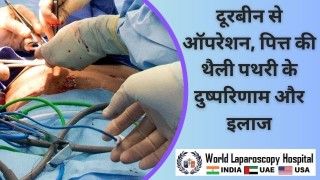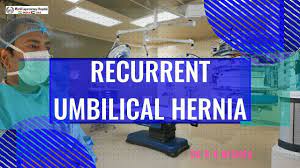Mastering Laparoscopy: Insights from Dubai's Training Institute Graduates
Add to
Share
1,181 views
Report
2 years ago
Description
Introduction Laparoscopy, a minimally invasive surgical technique, has revolutionized the field of surgery by offering numerous advantages such as smaller incisions, shorter recovery times, and reduced post-operative pain. Dubai, known for its world-class healthcare infrastructure, has emerged as a hub for laparoscopic surgery training, attracting aspiring surgeons from around the world. In this comprehensive article, we delve into the world of laparoscopy training in Dubai, focusing on the insights gained from graduates of the training institutes. We'll explore the reasons behind the popularity of laparoscopy training in Dubai, the curriculum and methodologies employed, and the impact of this training on the careers of surgical graduates. I. The Rise of Laparoscopy Training in Dubai Dubai has witnessed exponential growth in the healthcare sector over the past few decades, with a particular emphasis on advanced surgical techniques. This surge in interest can be attributed to several factors: Medical Tourism: Dubai has become a hotspot for medical tourism, drawing patients from across the globe. The demand for skilled laparoscopic surgeons has consequently risen, leading to the establishment of high-quality training institutes. State-of-the-Art Infrastructure: Dubai's healthcare facilities are renowned for their cutting-edge technology and state-of-the-art equipment, making it an ideal location for laparoscopy training. Expert Faculty: Training institutes in Dubai often employ world-renowned laparoscopic surgeons as instructors, providing students with access to top-tier expertise. II. Curriculum and Methodologies A. Comprehensive Training Programs Dubai's laparoscopy training institutes offer comprehensive programs that encompass both basic and advanced laparoscopic techniques. These programs typically include didactic lectures, hands-on training, and opportunities for clinical observation and practice. B. High-Tech Simulation Labs Simulation labs equipped with advanced laparoscopic simulators play a pivotal role in training. These simulators replicate real surgical conditions, allowing students to develop their skills in a controlled environment before operating on patients. C. Mentorship and Case Observations Students often have the opportunity to observe experienced laparoscopic surgeons in real surgical settings. This mentorship approach enhances their understanding of surgical procedures and fosters confidence. D. Continuous Evaluation Regular assessments and evaluations help students track their progress and identify areas needing improvement. Constructive feedback from instructors is crucial for skill development. III. Insights from Graduates A. Enhanced Skillset Graduates of Dubai's laparoscopy training institutes consistently report a significant enhancement in their surgical skills. The immersive learning experience, combined with exposure to diverse surgical cases, hones their abilities. B. Global Career Opportunities The international recognition of Dubai's laparoscopy training programs opens doors to global career opportunities. Graduates often find themselves sought after by hospitals and healthcare institutions worldwide. C. Confidence and Competence The rigorous training and mentorship instill a sense of confidence and competence in graduates, enabling them to handle complex laparoscopic procedures with ease. D. Networking Opportunities Dubai's training institutes facilitate networking among students, instructors, and industry experts. These connections often prove invaluable for career growth and collaborative research. IV. Challenges and Future Prospects While Dubai's laparoscopy training programs have garnered widespread acclaim, they do face challenges: A. Cost of Training: High tuition fees and living expenses in Dubai can be a barrier for some aspiring surgeons. B. Intensive Nature: Laparoscopy training is demanding, requiring dedication and long hours of practice. C. Work-Life Balance: Achieving work-life balance can be challenging in the competitive field of surgery. Despite these challenges, the future of laparoscopy training in Dubai appears promising: Continued Innovation: Dubai's healthcare sector is known for its continuous innovation, ensuring that training programs stay up-to-date with the latest advancements in laparoscopic surgery. Increased Accessibility: Efforts are being made to make training more accessible, with scholarships and financial aid options. Global Collaboration: Dubai's laparoscopy training institutes are increasingly collaborating with international institutions, expanding their reach and impact. Conclusion Dubai's laparoscopy training institutes have emerged as global leaders in providing comprehensive and cutting-edge education in minimally invasive surgery. Graduates of these programs not only gain enhanced surgical skills but also the confidence and competence to excel in their careers. As laparoscopy continues to evolve, Dubai's role in shaping the future of surgical training remains pivotal, offering a beacon of hope and opportunity for aspiring surgeons worldwide.
Similar Videos






